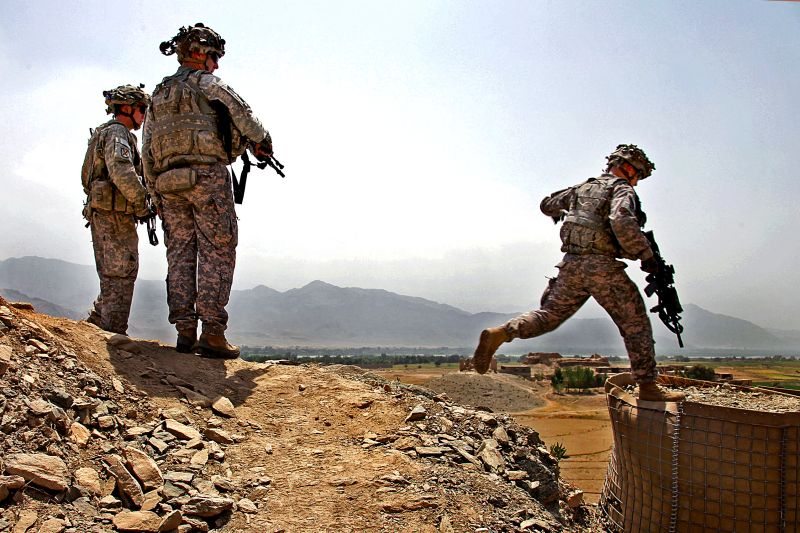U.S. troops in Afghanistan will decrease by 34,000 over the coming year, President Barack Obama announced tonight in his annual State of the Union address.
“After a decade of grinding war, our brave men and women in uniform are coming home,” he said early in his remarks to a joint session of Congress. Later in the speech, the commander in chief outlined his plan for troops in Afghanistan, now numbering about 66,000.
“Already, we have brought home 33,000 of our brave servicemen and women,” he said. “This spring, our forces will move into a support role, while Afghan security forces take the lead. Tonight, I can announce that over the next year, another 34,000 American troops will come home from Afghanistan. This drawdown will continue. And by the end of next year, our war in Afghanistan will be over.”
The president credited “the troops and civilians who sacrifice every day to protect us. Because of them, we can say with confidence that America will complete its mission in Afghanistan, and achieve our objective of defeating the core of al-Qaida.”
America’s commitment to a unified and sovereign Afghanistan will endure beyond 2014, Obama said, but the nature of that commitment will change.
“We’re negotiating an agreement with the Afghan government that focuses on two missions: training and equipping Afghan forces so that the country does not again slip into chaos, and counter-terrorism efforts that allow us to pursue the remnants of al Qaeda and their affiliates,” he noted.
Defense Secretary Leon E. Panetta, in a statement, said he welcomes the commander in chief’s announcement. The figure was based, he said, on Marine Corps Gen. John Allen’s strategic recommendation of a phased approach to decreasing the force, now numbering about 66,000.
Allen turned over command of NATO’s International Security Assistance Force and U.S. forces in Afghanistan to Marine Corps Gen. Joseph F. Dunford Jr. during a Feb. 10 ceremony in Kabul, Afghanistan.
The secretary said in his statement that in consultations with the president and his national security team, “I strongly supported General Allen’s recommendation and I believe the president’s decision puts us on the right path to succeed in Afghanistan.”
Panetta said he is confident Dunford will have the combat power he needs to protect coalition forces, continue building up Afghan forces, and “achieve the goal of this campaign to deny al Qaeda a safe haven to attack our homeland.”
Panetta noted the United States, NATO and the Afghan government agreed in Lisbon in 2010, and affirmed in Chicago in 2012, that Afghanistan will assume full responsibility for its security by the end of 2014.
“We are on track for that goal,” he said, “and we will maintain a long-term commitment to Afghanistan including through the continued training and equipping of Afghan forces and counter-terrorism operations against al Qaeda and their affiliates.”
The American people should never forget 9/11 is the reason their men and women are fighting in Afghanistan, Panetta said.
“After more than a decade of great sacrifice and hard-fought progress, we are now on a path to an Afghanistan that cannot be used as a launching pad for attacks against our nation,” the secretary said.
“Our troops on the ground will continue to be in a tough fight, and they will continue to face real challenges, but our fundamental goal is now within sight,” he concluded. “Thanks to their continued dedication and sacrifice, I believe we will prevail.”










